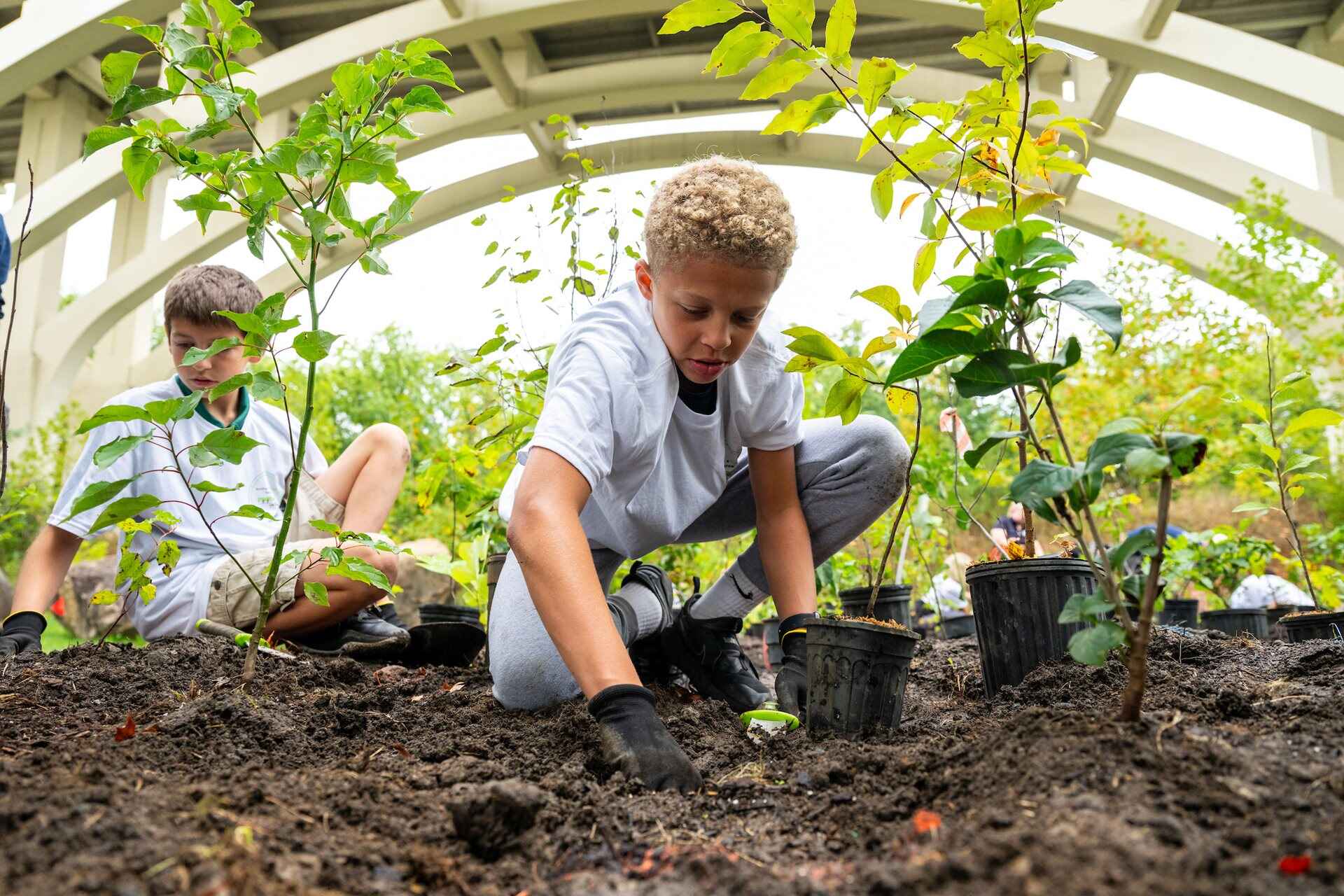Rooted in Trees and Cleveland Metroparks Zoo Plant First Mini Forest at a U.S. Zoo
Posted: September 26 , 2024

Rooted in Trees, a non-profit organization dedicated to restoring and preserving the tree canopy in Northern Ohio, has partnered with Cleveland Metroparks Zoo to plant the first-ever mini forest at a zoo in the United States. More than 800 trees were planted with help from The Holden Arboretum’s Tree Corp, members of the Student Conservation Association and 30 8th-grade students from Cleveland’s Urban Community School.
“This mini forest planting initiative symbolizes our commitment to restoring native ecosystems, educating the public about the importance of tree canopies and fostering community involvement,” said Paul Abbey, Founder of Rooted in Trees. “By creating this dense native woodland area, we are not only enhancing the Zoo’s landscape but also contributing to a greener, healthier environment for the entire community.”
The mini forest, a small-scale, densely planted green space approximately the size of a tennis court, features 800 native trees and shrubs, including ironwoods, Ohio buckeyes, red oaks, tulip trees, viburnums, and witch hazels.
“Cleveland Metroparks Zoo is a leader in science, conservation, and education that focuses on the interaction between people, animals and the environment. The mini forest planting provides us an opportunity to discuss how important trees are to creating healthy environments for both animals and people,” said Cleveland Metroparks Zoo Executive Director Dr. Christopher Kuhar.
The concept of mini forests, originally developed by Japanese botanist Akira Miyawaki, PhD, has been gaining global popularity for its ecological and social benefits, including boosting biodiversity, managing stormwater, improving urban air quality, and enhancing community well-being.
In just three years, the mini forest at Cleveland Metroparks Zoo will transform into a lush, full-scale forest, providing educational opportunities and a serene space for over a million annual visitors to enjoy.
Abbey, who has a long history of promoting environmental conservation in Northern Ohio, further stated, “This mini forest project serves as a model for urban green space restoration. It demonstrates how innovative, community-driven approaches can make a significant impact on our local environment and quality of life.”
The mini forest is planted in an existing green space just down the hill from Rosebrough Tiger Passage, along Big Creek. The site will feature shaded areas for visitors and interpretative signage demonstrating the importance of native trees and ecosystem restoration.
